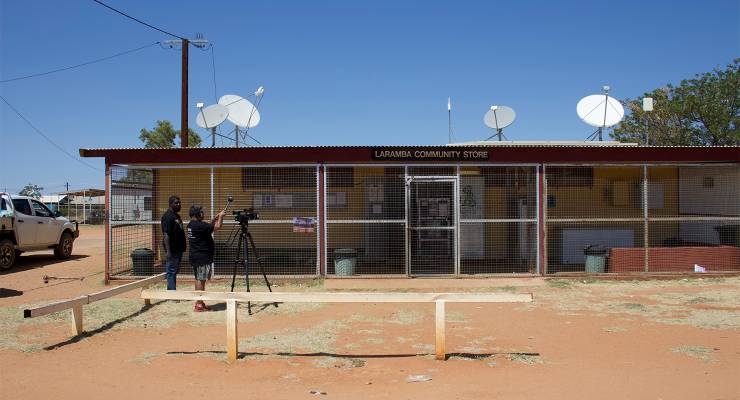
An Indigenous senator has called the timing of referendum polling during school holidays a “huge wasted opportunity” as the Australian Electoral Commission (AEC) comes under fire for its lacklustre advertising of remote polling booths.
Greens First Nations spokeswoman and Yamatji Noongar woman Dorinda Cox told Crikey some people she’d spoken to in remote Western Australian communities had said they weren’t aware remote polling was happening.
“There wasn’t enough notice, nor advertising and signage, and people simply didn’t know polling booths were open locally. I had people asking me and others in town how and where to vote,” Cox said. “Once they did hear word on the grapevine, they struggled to find the locations of booths, so it’s clear advertising wasn’t targeted at the communities through the appropriate channels.
“What’s the point of achieving a record percentage of voter registrations if people don’t know when and where to vote and can’t use their democratic rights?”
Cox, who supports the Yes camp in the First Nations Voice to Parliament campaign, said the AEC should ensure it involved Aboriginal-controlled community organisations when planning polls to “help broker, plan and promote polling booths, dates and locations, because they have the local knowledge and connections with mob and community”.
“It’s clear the remote polling wasn’t planned through a cultural lens, for events like Sorry Business and how to manage voting in those important cultural circumstances and for the process to be nimble to swiftly change when local events require it,” Cox said.
“Polling is happening during school holidays, when many remote people leave town, and that’s a huge, wasted opportunity.”
In the ACT, Northern Territory, NSW and WA, school holidays run until Monday, October 9. South Australia and Tasmania won’t begin term four until October 16 — the Monday after the referendum — and Victoria and Queensland began the new term this week.
Cox’s comments come after Crikey and reporting partner Indigenous Community Television (ICTV) spent three days following the AEC’s remote voter service in communities up the Tanami in the NT. Despite a public messaging campaign that these roving polls in remote communities were the product of “many, many months” of community consultation, no-one Crikey and ICTV spoke to in community knew the AEC was coming.
The date, time and place of polling was not pre-advertised, reporters were told, and there was no day-of advertising. The polling booths were set up without any AEC signs that said “Vote here”. On top of the challenges of finding the polling booths, the small amount of information provided to Indigenous communities (at best, a single A4 sheet of paper) was in English. There were also no AEC-employed Aboriginal interpreters present when Crikey/ICTV visited the communities.
Secretariat of National Aboriginal and Islander Child Care CEO Catherine Liddle, an Arrernte and Luritja woman from Central Australia, said it wasn’t the first time remote communities had been neglected when it came to access to polling information.
“Historically, in the bush, the numbers of voters are lower than they should be. And this has always been an ongoing concern,” she told Crikey.
In Liddle’s view, a Voice to Parliament could help voting authorities make sure remote access is improved in the future: “That is why we need structures like the Closing the Gap agreement, and it is why we need a Voice.”
Crikey attempted to contact No proponents for their views on remote polling access, without success.
A spokesperson for the AEC told Crikey and ICTV it had spoken to a range of community members before making plans for offering remote voter services.









Crikey is committed to hosting lively discussions. Help us keep the conversation useful, interesting and welcoming. We aim to publish comments quickly in the interest of promoting robust conversation, but we’re a small team and we deploy filters to protect against legal risk. Occasionally your comment may be held up while we review, but we’re working as fast as we can to keep the conversation rolling.
The Crikey comment section is members-only content. Please subscribe to leave a comment.
The Crikey comment section is members-only content. Please login to leave a comment.